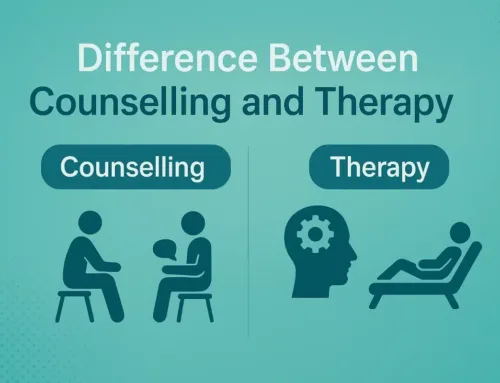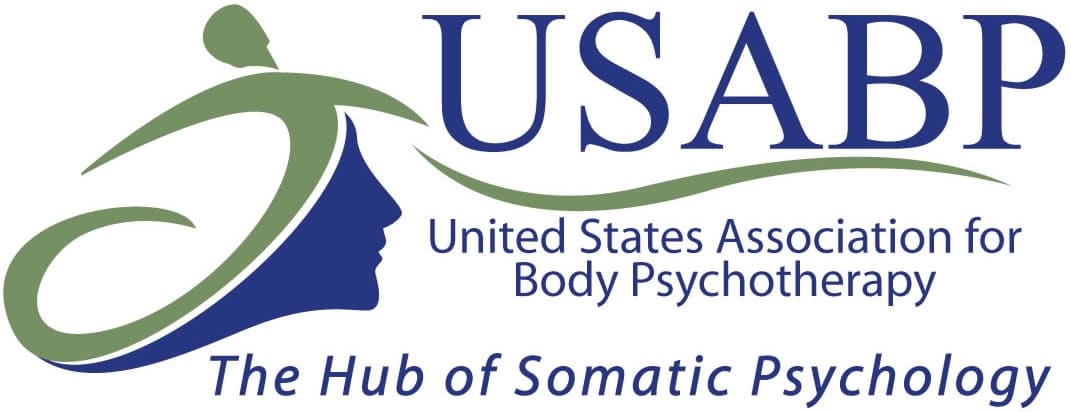Couples counselling helps partners improve communication, rebuild trust, and increase relationship satisfaction with clear goals and practical tools. This article explains how relationship counselling services work, what to expect at the first session, and how to choose an experienced practitioner who fits your unique situation. Whether you prefer face to face support in Perth or secure online sessions across Australia, you will find clear steps, practical strategies, and gentle professional guidance for healthier relationships.
We cover pre marriage counselling, relationship therapy, links with family therapy and individual counselling, and how to create a supportive environment where both partners feel safe to talk. If you are a married couple, newly dating, or co-parenting, the aim is the same: steady skills, respectful communication, and positive patterns that last.
What is couples counselling and how does it work?
Couples counselling is a structured process that helps partners understand conflict patterns, improve communication, and agree on practical changes. It blends education and therapy, so you learn skills in session and practise them at home. A trained counsellor keeps the space non judgemental, neutral, and focused on outcomes such as better intimacy, clearer roles, and safer conflict.
- Assessment: you describe key events, strengths, and repeat loops. The practitioner maps your relationship conflict cycle and the triggers that start it.
- Goals: you set two to five aims that matter, for example “repair within 30 minutes after an argument” or “schedule a weekly check-in”.
- Session structure: brief check-in, one focused skill, and 1 to 3 agreed actions.
- Roles and safety: the counsellor is a facilitator, not a referee; the room has rules for time-outs, respectful language, and consent for sensitive topics.
- Pace and practice: you can expect early skills in weeks 1 to 3 and deeper work by weeks 4 to 8 when you practice between sessions.
Further reading: How does marriage counselling work?
What issues can couples counselling help with?
It helps with communication breakdowns, trust injuries, money stress, intimacy concerns, and parenting conflict. It also covers jealousy, resentment loops, in-law pressure, and division of labour. Life transitions such as a new baby, job loss, illness, or moving house can strain family systems and lower relationship satisfaction. Counselling gives practical tools to reset unhealthy patterns, improve emotional connection, and protect family relationship routines.
Is couples counselling only for married couples?
No, it supports dating, de facto, engaged, and married couples. Services are inclusive across ages, cultures, and stages. Counselling also suits co-parents who attend together to design plans that protect children and reduce conflict. It is common for many couples to start before a wedding as pre marriage counselling to build healthy relationships from the start.
Related article: What is the difference between couples therapy and marriage counselling?
How do I know if we need couples therapy?
You likely benefit if arguments repeat, repair takes too long, or trust and closeness feel low. Use this quick checklist and act early.
- Arguments repeat weekly about the same topics.
- Silence or stonewalling lasts longer than 24 hours.
- Repair feels slow or incomplete after conflict.
- Sex, affection, or touch has dropped for more than a month without discussion.
- One or both partners feel flat, anxious, or irritable most days.
- Parenting, money, or work-life stress keeps leaking into other areas of life.
Can couples counselling help save a relationship?
Yes, many couples stabilise and reconnect when they apply skills consistently. Realistic outcomes include fewer escalations, clearer agreements, and more open communication within weeks. At times, the healthiest plan is structured separation counselling, especially where values, safety, or long-term goals do not align. The measure is not a universal success rate but whether the plan protects wellbeing, respect, and the best interests of any children.
Read – What Is the Success Rate of Couples Counselling?
What happens in a couples counselling session?
You set goals, map your cycle, learn skills, and leave with 1 to 3 actions. The first session includes intake, boundaries, and consent so both people feel safe. Early skills include:
- Time-outs: pause before escalation and return at an agreed time.
- Fair requests: describe a behaviour you want to see and the reason it matters.
- Weekly check-in: 10 minutes to review agreements, appreciations, and one improvement.
What is the difference between couples counselling and individual therapy?
Couples work targets the interaction pattern, while individual therapy targets one person’s thoughts, emotions, and behaviours. Add individual counselling when trauma, grief, anxiety, or depression needs focused work. Privacy rules are clear: what is shared individually is not brought into joint sessions without consent.
Is couples counselling confidential?
Yes, within legal and duty-of-care limits. Limits include risk to self or others, child safety, and court orders. Notes are stored securely, access is restricted, and the practice has a policy on secrets so the process stays fair for both people.
Can counselling help with infidelity or cheating?
Yes, structured repair can address betrayal, rebuild trust, and set boundaries. A phased plan moves from impact and stabilisation, to meaning and context, then to rebuilding with verified transparency. Non-negotiables for future safety are written, specific, and measurable.
See more: Does marriage counselling work for infidelity?
How long does couples counselling usually take?
Most couples see progress in 6 to 12 sessions with reviews at sessions 3 and 6. Brief work targets a single issue. Deeper work addresses attachment injuries and long cycles. Maintenance check-ins every 4 to 8 weeks help changes hold. Extended 80 to 90 minute sessions suit high conflict or complex history.
Related guide: How many couples stay together after couples therapy?
Does couples counselling actually work?
Yes, research-based methods reduce conflict and improve closeness when couples do the work. Emotionally Focused Therapy focuses on attachment and empathy. Cognitive Behavioural Therapy challenges thought traps and builds clear request language. When partners practise between sessions, results strengthen and last.
Evidence overview: Is couples therapy evidence based?
How do I choose the right couples therapist?
Match on approach, experience with your issue, and practical availability. Use this five-point fit checklist:
- Methods used, such as emotionally focused therapy and CBT.
- Years in practice and examples with your concerns.
- Cultural fit, faith sensitivity, and inclusive language.
- Access and modality, including online and after-hours.
- Clear plan by session two and a review at session three.
If you prefer a specific counsellor, ask how their style fits your aim and whether they collaborate with a psychologist or other counselling services when needed.
Compare options: What type of counselling is best for couples?
What should I expect at the first couples counselling session?
You will clarify goals, share perspectives, and agree on ground rules and next steps. The intake covers confidentiality and consent, then a short skills practice. Bring your goals, key dates, and any legal orders. Expect to leave with 1 to 3 actions to try at home. Many clients say the clear plan helps them feel confident after the very first appointment.
Is online couples counselling better than in-person?
Both work, so choose based on privacy, access, and comfort. Online sessions reduce travel and help long-distance couples. Face to face can be better when emotions run hot or safety needs close support. For online work, book a quiet room, use headphones, and check your internet.
How it works: Online counselling
How much does couples counselling cost?
Standard 50 to 60 minute sessions in Perth often sit between $140 and $250 per couple. Longer sessions suit high conflict. Check the cancellation window, invoices, and payment options when you book. If cost is tight, consider spacing sessions, setting tight goals, or asking about community clinics with lower fees and longer waitlists.
What qualifications should a couples counsellor have?
Look for recognised training, supervised practice, and ongoing professional development. In Australia, titles vary. A marriage counsellor, relationship counsellor, psychotherapist, or psychologist can offer effective counselling when trained in evidence-based methods. Ask about experience with intimacy concerns, betrayal, or parenting stress.
Explainer: What’s the difference between a psychologist and a psychotherapist?
Can we start couples counselling if only one of us wants it?
Yes, one partner can begin and influence the pattern. Boundary scripts, de-escalation, and self-care shift cycles. A respectful invitation might say, “I want to improve how I speak and listen. Would you attend counselling for two trial sessions so we can see if it helps us move forward.”
Is faith-aligned or LGBTQ+ affirming support available?
Yes, preferences can be respected while keeping sessions inclusive and safe. Value-aligned goals, respectful language, and clear boundaries support a supportive space. Note your preferences on the enquiry form so intake can match you well.
Does couples counselling help long-distance relationships?
Yes, telehealth allows skill-based sessions and structured check-ins. Schedule weekly connection rituals, protect time zones, and agree rules for digital conflict. In-person intensives can help when you need a reset.
Read more: Online couples counselling benefits for Perth residents
Which method works best for us?
Effectiveness depends on your goals and patterns, so counsellors integrate methods as needed. EFT repairs attachment injuries and grows understanding. CBT reduces mind reading, labels the story you tell yourself, and teaches clear requests. Assessment guides method choice in the first two sessions.
Where can I find a couples counsellor near me?
Sessions are available in Perth and by telehealth across WA. Check suburbs, access, and parking. Ask about privacy options and accessibility if required.
How do I book a couples therapy session online?
Use the enquiry form or call to choose a time. You will receive confirmation, intake forms, and a first-session checklist. After-hours may be available on request.
Book here: Contact Energetics Institute
Is couples counselling covered by insurance in Australia?
Medicare does not usually rebate couples sessions unless billed to one partner under a GP plan. Private health funds or employer EAP may assist. Expect a gap fee and request itemised receipts.
Can I find affordable couples counselling in Perth?
Yes, options include shorter packages, longer gaps between sessions, or targeted goals. Community and university clinics can reduce fees, although waitlists may apply. Maintenance check-ins help protect gains at lower cost.
Can we work on family and parenting conflict as part of couples work?
Yes, sessions can include family dynamics and co-parenting plans. Roles, routines, and boundaries reduce friction and support children through change.
Can we get guidance for parenting after separation?
Yes, structured co-parenting support protects children from conflict. Communication plans, handover rules, conflict-free channels, and review points help parents work together with respect.
Conclusion
Couples counselling is a clear, learnable process that helps partners rebuild trust, restore emotional connection, and strengthen intimacy. With an experienced practitioner, a supportive routine, and steady practice, most couples can replace unhealthy patterns with positive ones, lift day-to-day wellbeing, and protect the people they love. If you are struggling, take the first small step. Choose a good-fit practitioner, schedule an appointment, and try two sessions.
You will gain insights, clarity about how many sessions you might need, and a practical plan you can evolve together. For Perth and WA, you can attend counselling face to face or book online. If you are ready to discuss goals and next steps, contact the team and start your next chapter with focus and care.
Related Posts
Fees And Rebates
We offer cost-effective solutions that can fit within your budget. The insights and skills acquired in therapy can continue to positively impact mental and emotional health long after the therapy sessions have ended, making it a truly worthwhile investment in yourself.















